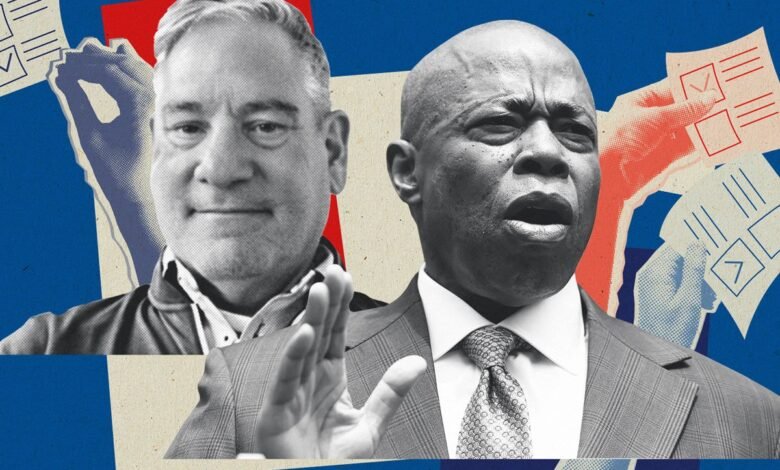NYC Rent Guidelines Board Approves 3% Increase

Sometimes compromise means nobody ends up happy.
That’s certainly the case for New York City’s Rent Guidelines Board, which voted to raise prices in rent-stabilized units by a number too low for landlords and higher than the freeze tenant activists have lobbied for.
The board, a majority of which are appointed by the mayor, voted to increase rents by 3 percent for one-year leases and 4.5 percent for two-year leases. The motion passed five to four, with all tenant representatives and landlord representatives voting against the measure. The increase will go into effect October.
The typically high-energy annual meeting was particularly charged following Zohran Mamdani’s win in the Democratic mayoral primary just a week prior. Mamdani pledged to direct the board to freeze rent for four years for roughly 2 million tenants.
The unhappiness on both sides underscores the tough position the board found itself in, as distress builds in the rent-stabilized housing stock while political support grows for a rent freeze.
“The dual mandate given to the RGB is simply impossible to satisfy,” Mark Willis, senior policy fellow at New York University’s Furman Center, said via email prior to the meeting. “In an inflationary world, there is no level of rent increase that can both preserve affordability, particularly for those whose incomes have not risen, and maintain the financial health of buildings that heavily rely on the income from rent stabilized units.”
Landlord groups said the increase is still unlikely to cover rising expenses, which, combined with tenant-friendly statewide policies, have cut into revenues for rent-stabilized owners. A board report from earlier this year found that operating costs have increased 6.3 percent since last year. Insurance and fuel were major drivers of that increase, with costs increasing 18.7 and 10.3 percent, respectively.
“These adjustments by RGB, while less than the increase in costs imposed on owners, are a necessary step toward preserving the long-term health of our housing stock,” James Whelan, president of the Real Estate Board of New York, said in a statement.
The two members of the board representing owners voted down the measure. Distress is most severe in outer boroughs, with the Furman Center finding board rent increases fell short by 1% per year for highly rent-stabilized buildings in the Bronx between 2010 and 2023.
“In the past 12 years, the board has made a systemic shift towards the systematic defunding of buildings,” owner representative Robert Ehrlich said at the meeting. “If this board is going to permanently adjust rents below inflation going forward, there is only one outcome: systemic failure in the majority of rent-stabilized housing stock.”
Politicians have tried to thread the needle between the two warring camps. Mayor Eric Adams said he directed the board to vote for an even lower increase, although he did not endorse a rent freeze.
“Rent may be on the rise, but so are deteriorating housing conditions,” Adams said in a statement. “While freezing the rent may sound like a catchy slogan, it is bad policy, short-sighted, and only puts tenants in harm’s way.”
City comptroller Brad Lander rallied with tenant advocates before the meeting to call for a freeze. The city should take a targeted approach to addressing distress in the rent-stabilized stock, without putting the burden on tenants, he told The Real Deal.
“It’s a relatively small percentage of the portfolio,” he said. “To stick all New Yorkers with a big rent increase because there are a small percentage of buildings that need a program to address distress, it’s just a trick.”.
Tenant advocates have focused on the importance of broad affordability in the city.
“This increase betrays the stated purpose of the Board and will undoubtedly lead to increased rates of homelessness, eviction, and displacement among low-income New Yorkers,” the Legal Aid Society said in a statement.
Tenant advocates have rallied around Mamdani, who has said he would use his power to direct mayoral appointees to freeze rent. The campaign promise has sparked accusations of abuse of power from landlord groups, who underline that the board is meant to be independent.
“There has been a pledge by some politicians to destroy the independence of the Rent Guidelines Board,” Kenny Burgos, head of the New York Apartment Association, said in a statement. “We believe efforts to censor and control this independent institution are anti-Democratic and authoritarian and we will fight to stop that from happening.”
Read more

Mamdani’s victory spotlights independence of the Rent Guidelines Board

Rent Guidelines Board vote is last hope for landlords

RGB calls for 6.3% hike on rent-regulated leases. Landlords: Please!

